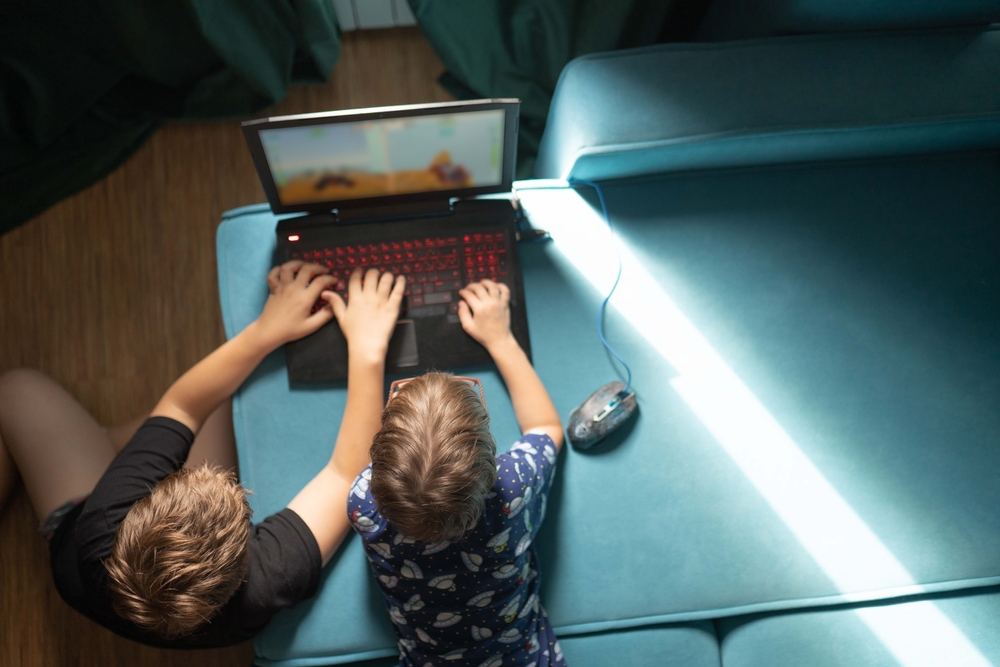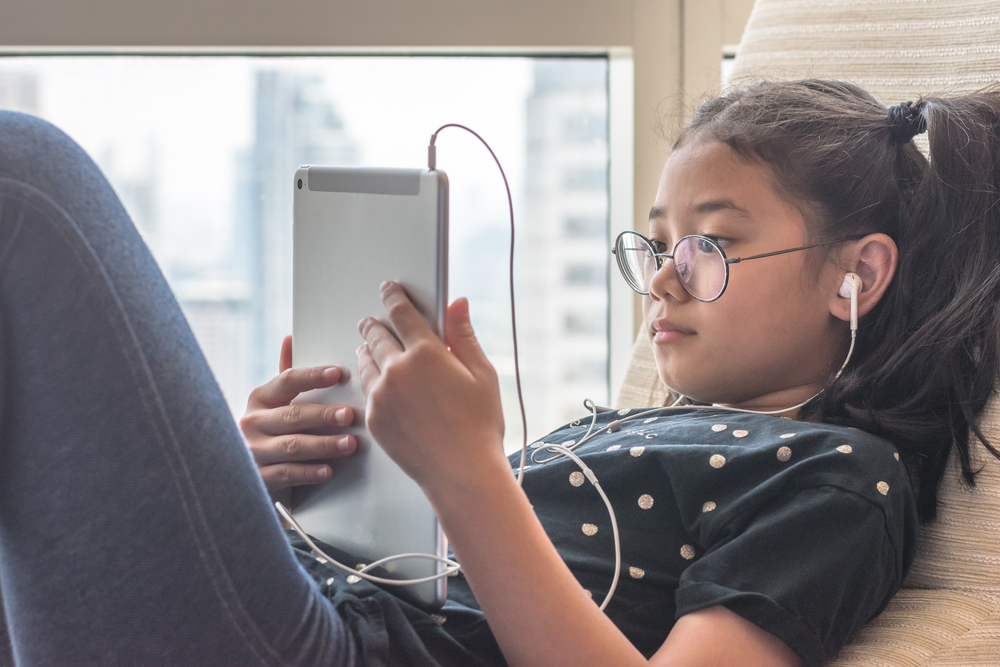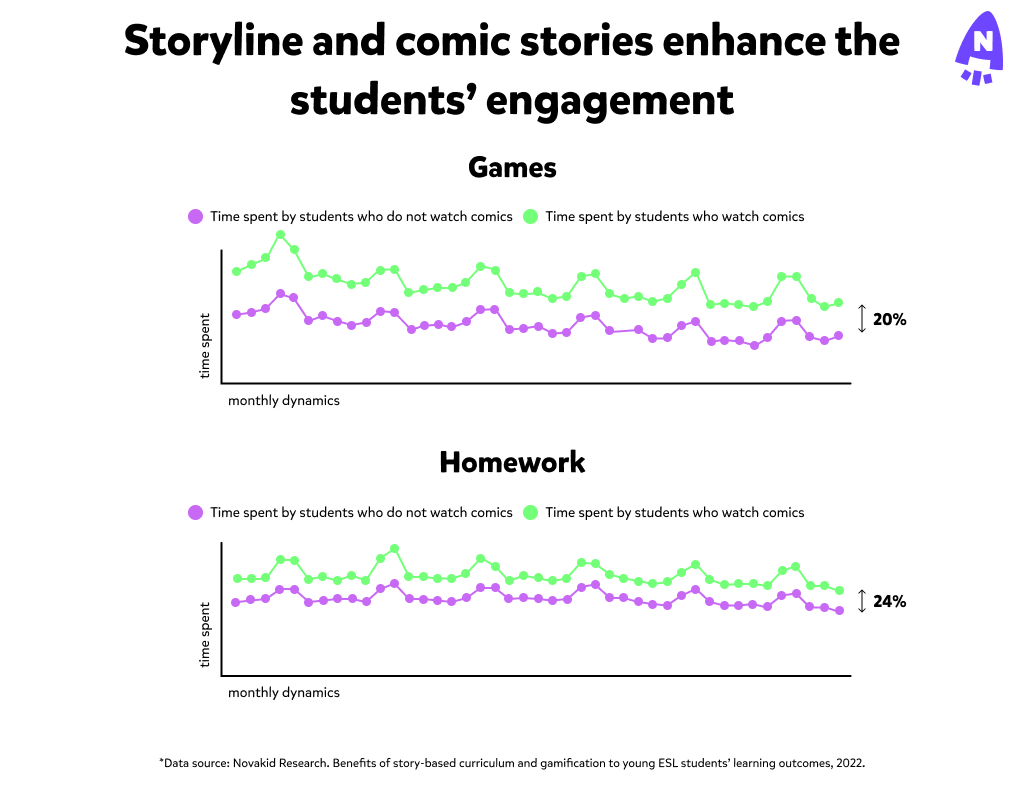Screen Time Dilemma: Novakid Conducted Research on Screen Time Habits of Children
- Don’t worry, education-related screen time is good
- More cartoons and video content, less books, a clear NO to social media and scrolling
Long summer vacations go hand in hand with long hours of leisure time for children. Traveling and quality time with friends and family is almost always accompanied by online entertainment or educational activities in front of a tablet, smartphone or computer.
Novakid, Europe’s leading online English school for children, recently conducted a survey with 10,000 families in 15 countries to find out how children from different countries spend their screen time, and discover the parents’ attitudes to the amount of the screen hours.
The survey picked up on the families’ experiences on matters concerning the screen time habits of their children in terms of educational and entertaining activities, and parents’ opinions on the amount of time their kids spend in front of their screens.
The study targeted individuals with children aged 4 to 12 years old across different levels of education, income and occupation. It was conducted during May 2022 in 15 countries across the globe including Spain, Italy, Germany, Romania, Russia, Turkey, Saudi Arabia, Qatar, Japan, Indonesia and South Korea.
Don’t worry, education-related screen time is good
According to the results of the research, children of 4 to 12 years of age across the globe tend to spend around two hours a week on education-related activities on a computer or a mobile device.
South Korea is the country with the highest screen time spent on education online: almost 49% of parents said their child spends from 3 to 10 hours completing online educational activities.
As for the parents’ attitude to the amount of the screen time their children are having on a daily basis, mothers and fathers in all the regions which took part in the survey are not worried about the hours spent in front of the screen specifically on educational activities.
However, in South Korea (19%), Spain (17%) and Turkey (14%), parents would like to reduce screen time. The highest number of parents who would like to reduce the screen time even on educational activities is in Japan, reaching almost 46%.
In general, families are not too concerned about the non-educational screen time activities, although there’s an intent to reduce it. This was observed in Spain (51%), Japan (61%), MENA countries (49%), Indonesia, Malaysia (55%) and in Russia (45%).
At the same time, 28% of Russian parents, 23% of Polish parents, 26% of Spanish parents and 11% of Italian parents think that the total screen time spent by their children is too much.
One of the most relevant studies to date about the impact of the screen time on youth revealed that it is likely not harmful to children, although it’s worth being “mindful of screens”, as the lead author Katie Paulich from the University of Colorado at Boulder said.
The studies found out that the school-aged children who spend more time in front of screens are less likely to suffer from anxiety and depression, on the contrary, they tend to have more close friends.
At the same time, they are only slightly more likely to have some attention disorders, problems with sleeping or lower academic performance, but the “influence of screen time was minute, as it accounted for only about 2% of the variation between kids in the outcomes measures.”

More cartoons and video content, less books, a clear NO to social media and scrolling
Both educational and non-educational video content holds the highest interest among children in almost all the regions surveyed. Kids and teens of 4-12 years of age tend to spend around 3 to 6 hours online every week watching cartoons, movies and other video content.
The positive impact of the video content on children’s motivation to learn has been reported by Novakid. In recent research (Benefits of story-based curriculum and gamification to young ESL students’ learning outcomes) published in April 2022 it was shown that students who watch animated comic stories have a higher retention rate than those who do not, representing an almost 30% difference between both groups tend to spend 24% more time on completing their homework tasks than the students who do not.
Social media, even in the case of chatting with family members and friends, is something that the larger part of families both in Europe and Asia do not allow their children to spend time on.
Almost 75% of parents in South Korea, 74% in Czech Republic and 68% in Germany say their children of 4-12 years of age do not use social media at all.
In MENA countries, parents are much less restrictive with the usage of social media: Almost a half of respondents from this region mentioned their children chatting with their friends and family via different social networks up to 6 hours a week.
Audiobooks and e-books for children are among the least popular online activities in all countries surveyed. However, the highest number of young book lovers is found in Russia and Germany: almost a half of parents in both countries mentioned reading ebooks and listening to audiobooks as their children’s regular weekly activity.
In Poland, Spain, MENA countries, Turkey and Russia, around 10-15% of children spend 3-6 hours a week surfing the internet. The countries with the highest number of parents who said their children did not surf the internet are South Korea (74%), Germany (70%) and Japan (65%).
Screen time has become an important part of leisure and educational activities. But how many hours should a child spend in front of a screen? It’s important to take the age of the child into account: daily screen time for children up to 6 years of age should not exceed one hour, and teenagers may spend up to three hours per day on different online activities.
At the same time, the quality of the screen time is not about the activity itself, but the impact it has on a child’s growth and development. Thus, the hours spent in front of the screen, regardless of the amount, should convert to outcomes: better social skills, higher emotional intelligence levels, and more profound knowledge of the world we live in.
Make the most of the screen time and help your child develop their English skills through online lessons at Novakid!










































